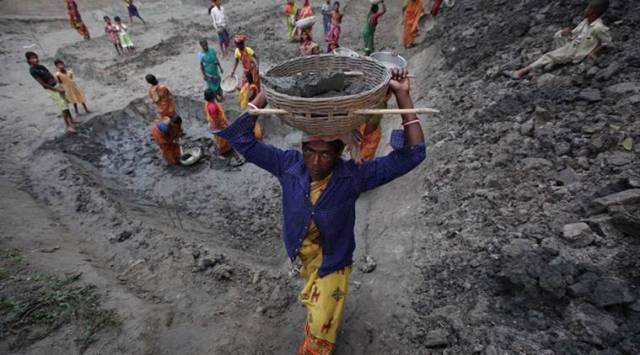
MGNREGS is facing a double whammy of sorts as the reduced rate hike in daily wages is coupled with a declining budgetary allocation for the rural programme. There is no component of standalone fund allocation to states and UTs under MGNREGS and funds released to the states and Union Territories (UT) is a continuous process. Funds are released by the centre to the states on the basis of the “agreed to” Labour Budget and the performance of the states and UTs during the financial year. Interestingly, under the scheme, wage payments must be made within 15 days of the date of closure of the muster roll. However, administrative delays and poor coordination between the Centre and the states in procedural requirements often result in withholding payments to the beneficiaries.
The Union budget 2023-24 cut down the allocation of MGNREGS by nearly 18 per cent compared to last year. From Rs. 73,000 allocated to the rural programme in 2022-23, the funding came down to Rs. 60,000 crores. When taking into consideration the revised estimate for the FY 2022-23 at Rs. 89,400 crores the decline in budgetary allocation for the next fiscal year is even more pronounced at nearly 33 per cent. The budgetary allocation for the upcoming financial year is the lowest ever in the last four years and further adds to the declining support for the scheme that provided livelihood support to upwards of 11.37 crore households till December 2022. Taking into account the social inclusion aspect of the scheme, in the financial year 2021-22, 19.75 per cent of the employment generated by the scheme went to Scheduled Caste (SC) whereas the number stood at 17.47 per cent and 56.19 per cent for Scheduled Tribes (ST) and women respectively out of total person-days generated that year.
Although the budgetary allocation for the scheme declined in recent years, revised estimates indicate increased spending and evidence the need for an increase in budgetary allocation. Between FY 2014-15 and 2018-19, the funds for MGNREGS saw a steady rise from Rs. 34,000 crores to Rs. 55,000 crores. However, between FY 2019-20 and 2020-21, the budgetary allocation hardly witnessed any increase. From Rs. 60,000 crores in FY 2019-20, budgetary support increased by a mere Rs. 1,500 crores for the next fiscal. This is despite a revised estimate of Rs. 71,000 crores at the end of FY 2019-20. The next fiscal witnessed a similar story in declining fiscal support for MGNREGS. From a revised estimate of Rs 1,11,500 crore in the financial year 2020-21, the budgetary allocation declined by 34 per cent in the next fiscal of 2021-22 to Rs. 73,000 crores. The decline in the budgetary allocation for the scheme is even as the rural unemployment rate stood at 6.5 per cent on 31st January 2023.















